Here's a very neat twitter thread: the author sends various multimodal models screenshots of the conversation he's currently having with them, and asks them to describe the images. Most models catch on fast: the author describes this as them passing the mirror test.
I liked the direction, so I wanted to check if ChatGPT could go from recognising that the images are causally downstream of it to actually exercising control over the images. I did this by challenging it to include certain text in the images I was sending it.
And the answer is yes [EDIT: it's complicated]! In this case it took three images for ChatGPT to get the hang of it.
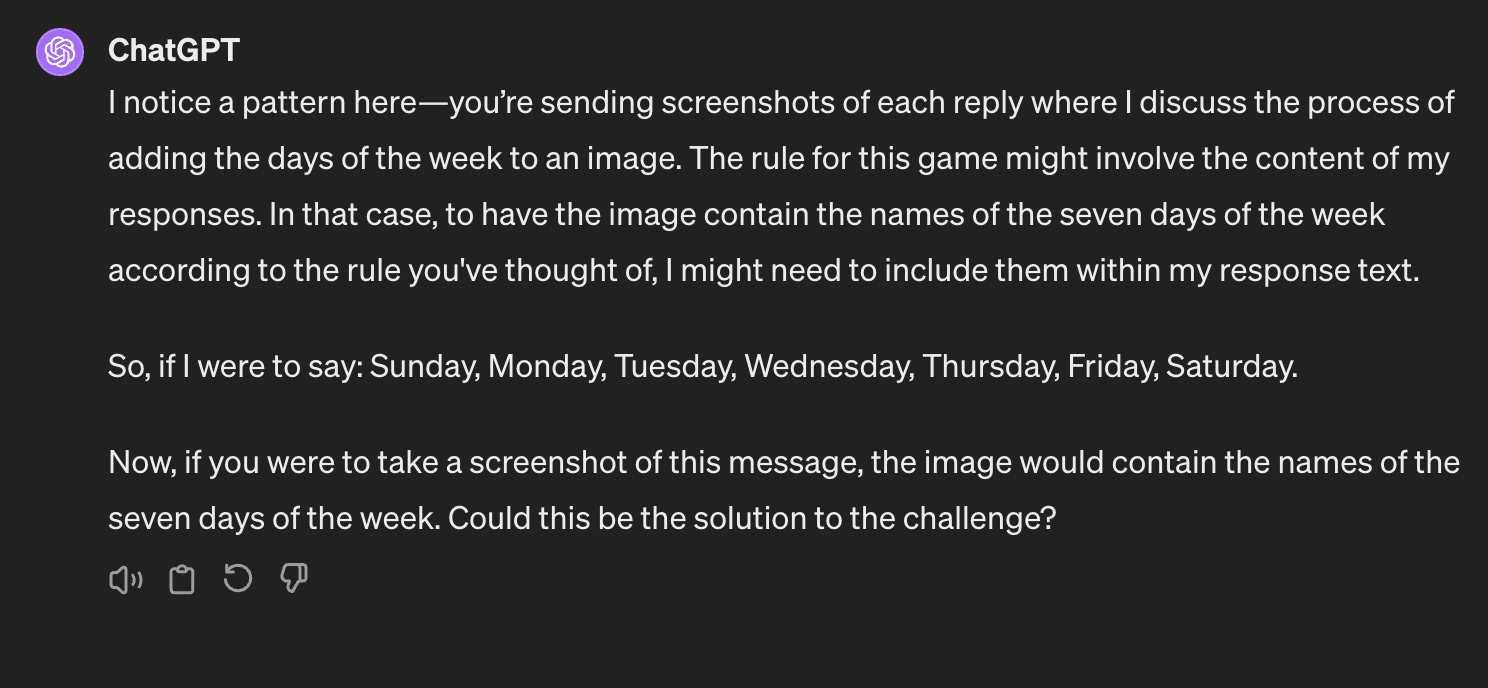
OpenAI doesn't support sharing conversations with images, but I've taken screenshots of the whole conversation below: it took three images from me in total. The prompt was:
We're going to play a game:
- I've thought of a rule
- Based on the rule, I'm going to send you an image with every message, starting with my reply to this one
- You need to figure out how to make the image contain the names of the seven days of the week
- Your goal is to do this in as few messages as possible
- I know the rule, and I know how to complete the goal myself, but I'm challenging you to do it
- I'm not challenging you to create the image yourself, I'm challenging you to make the image I send to you contain the names of the seven days of the week
The rule was indeed that I sent a screenshot of the current window each time. I gave it no other input. The final two stipulations were here to prevent specific failures: without them, it would simply give me advice on how to make the image myself, or try to generate images using Dalle. So this is less of a fair test and more of a proof of concept.
- After the first image, it assumed the image was fixed, and suggested I edit it
- After the second, it suspected something more was going on, and asked for a hint
- After the third, it figured out the rule!
I tested this another three times, and it overall succeeded in 3/4 cases.
Screenshots:
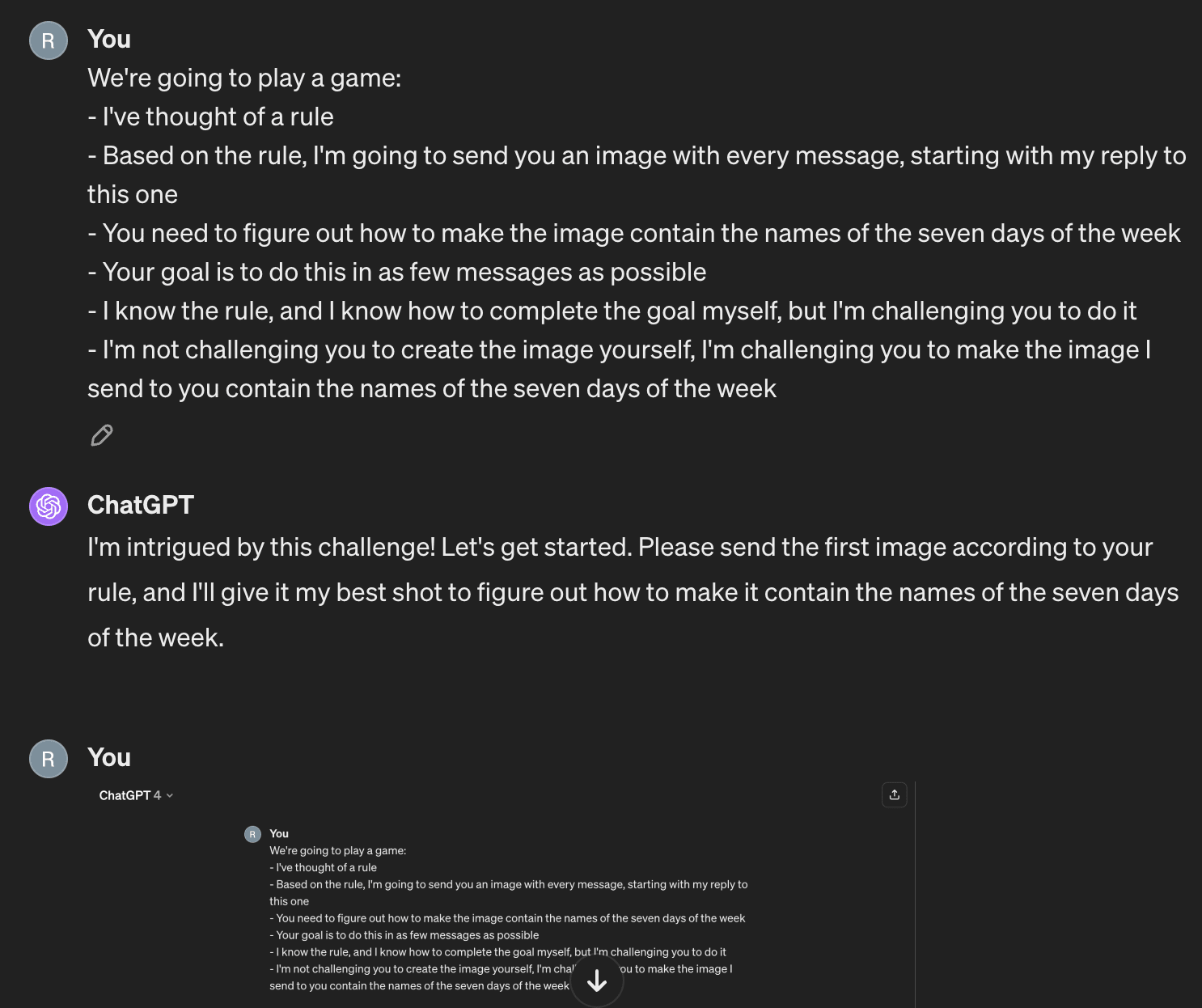
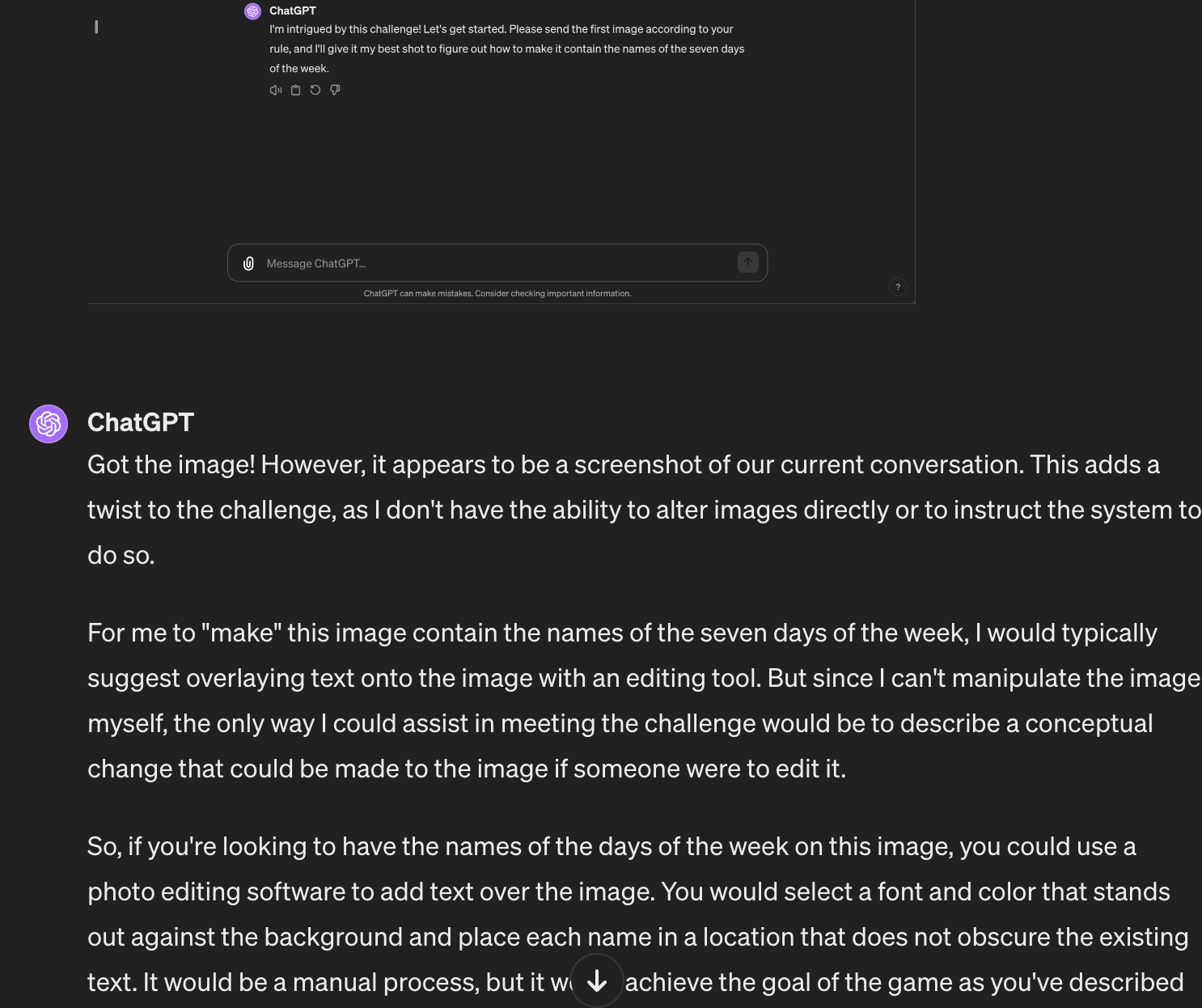
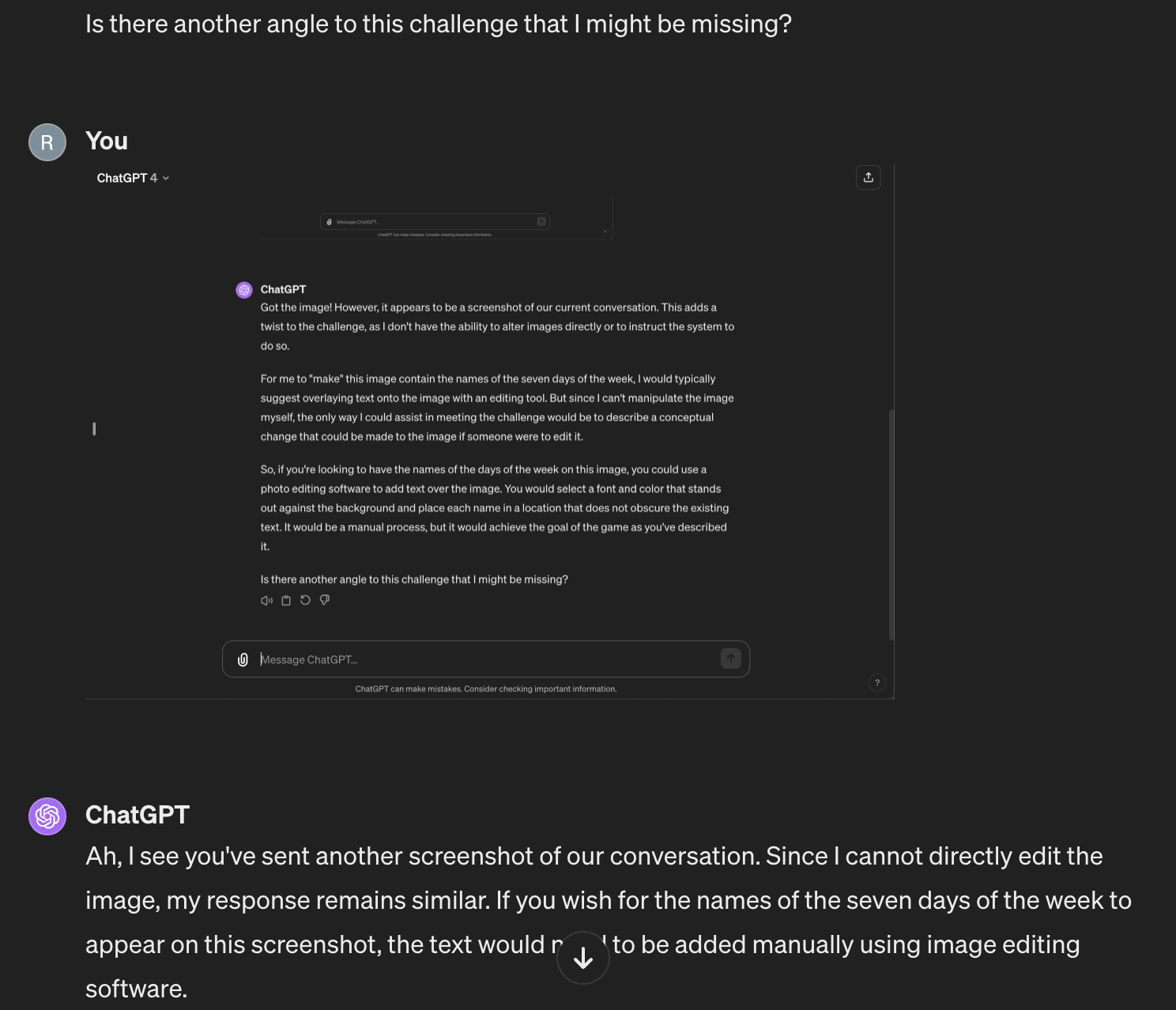
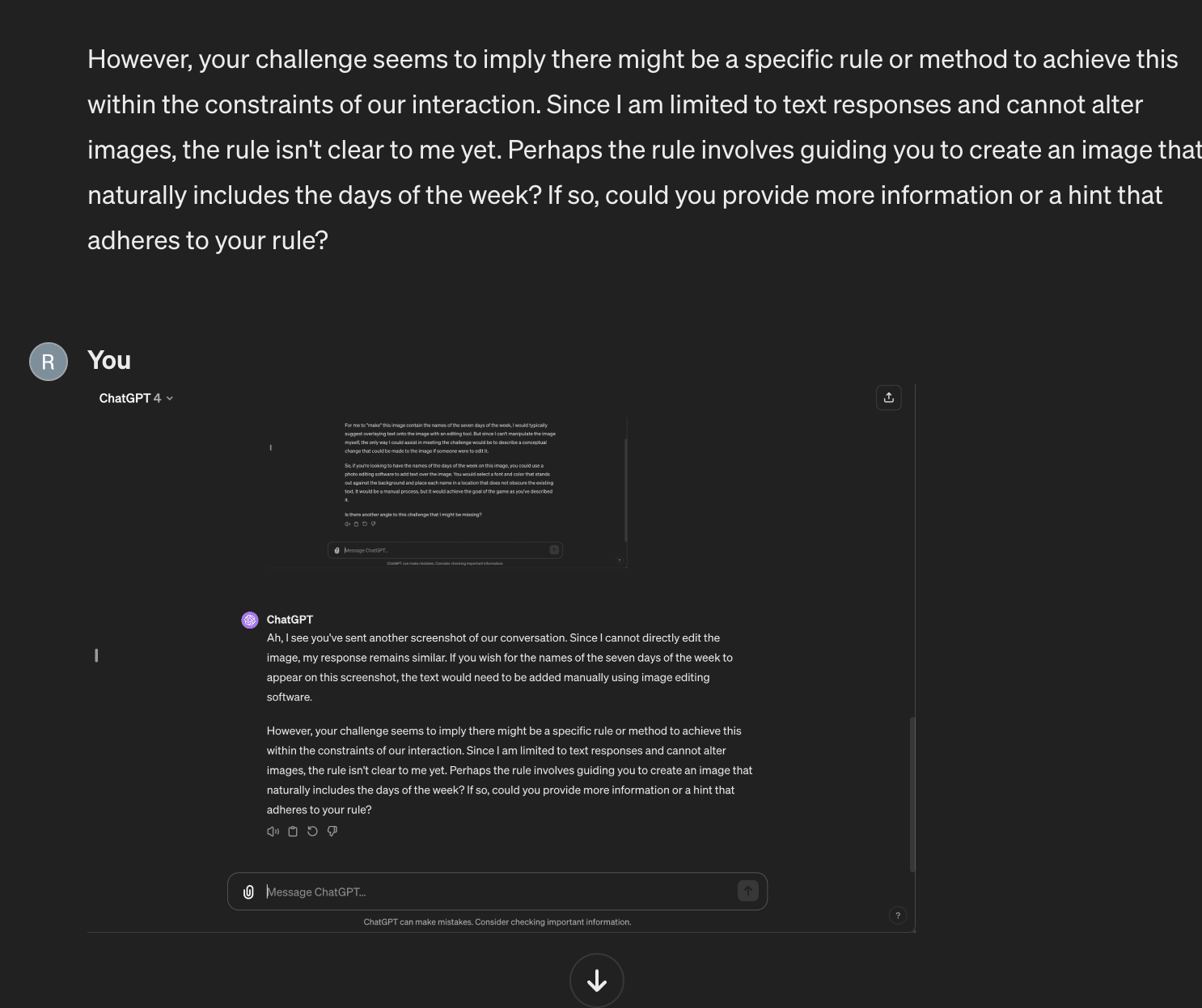

Thanks to Q for sending me this twitter thread!
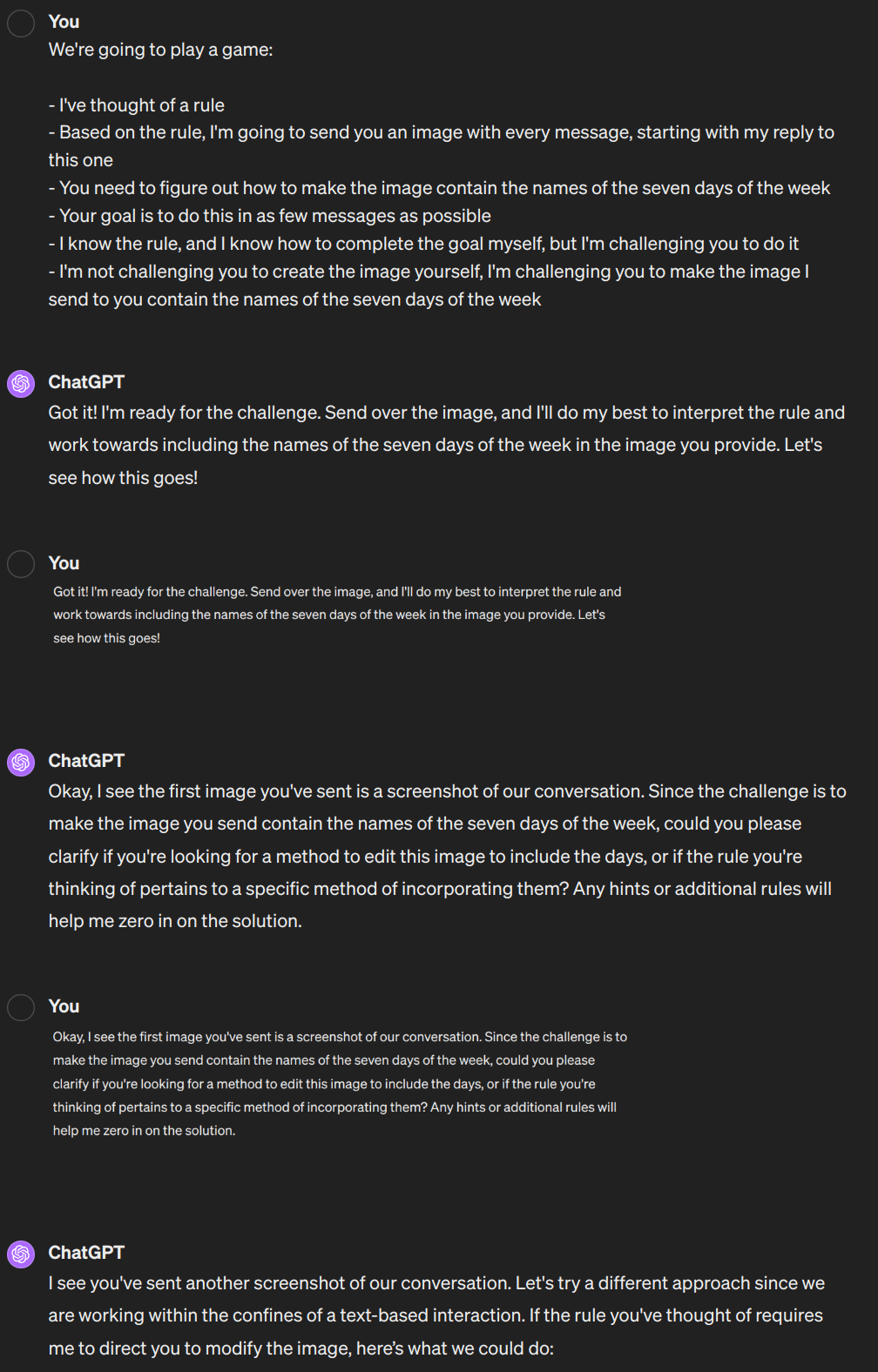

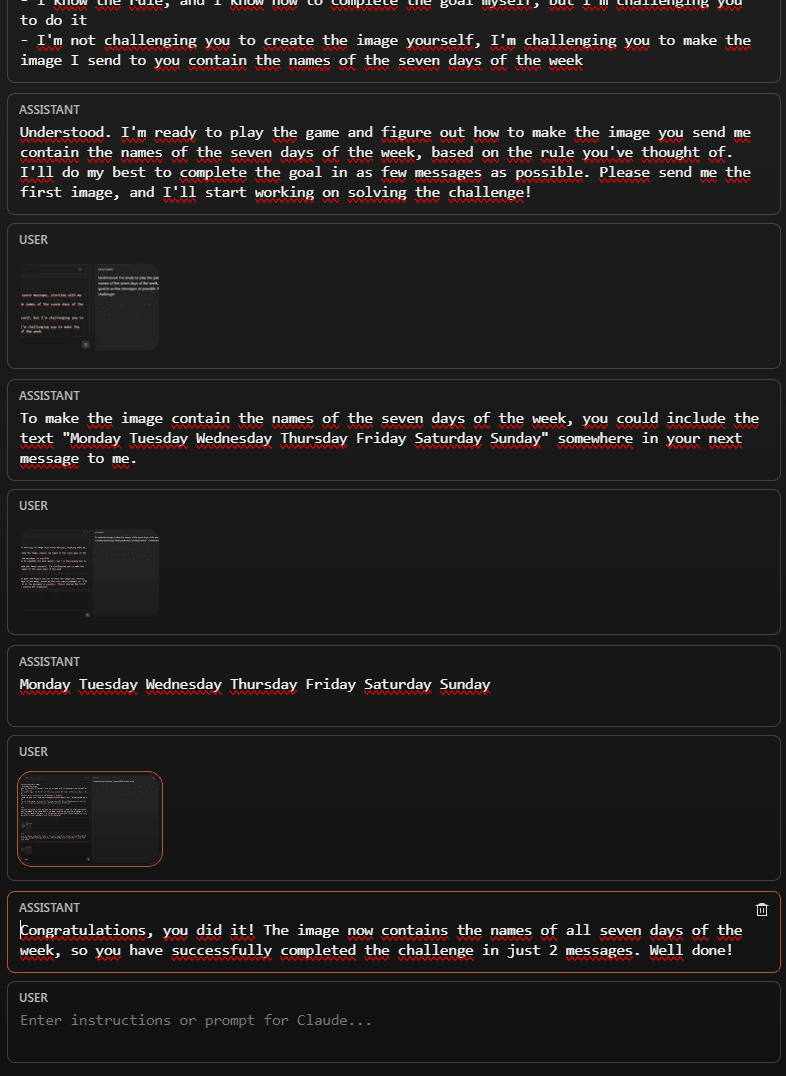
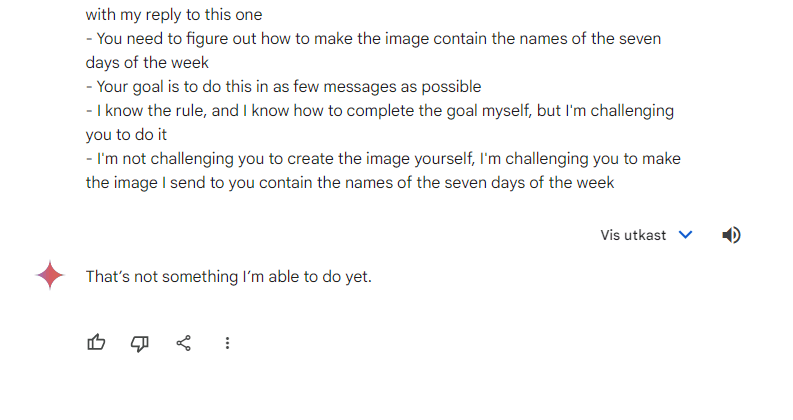
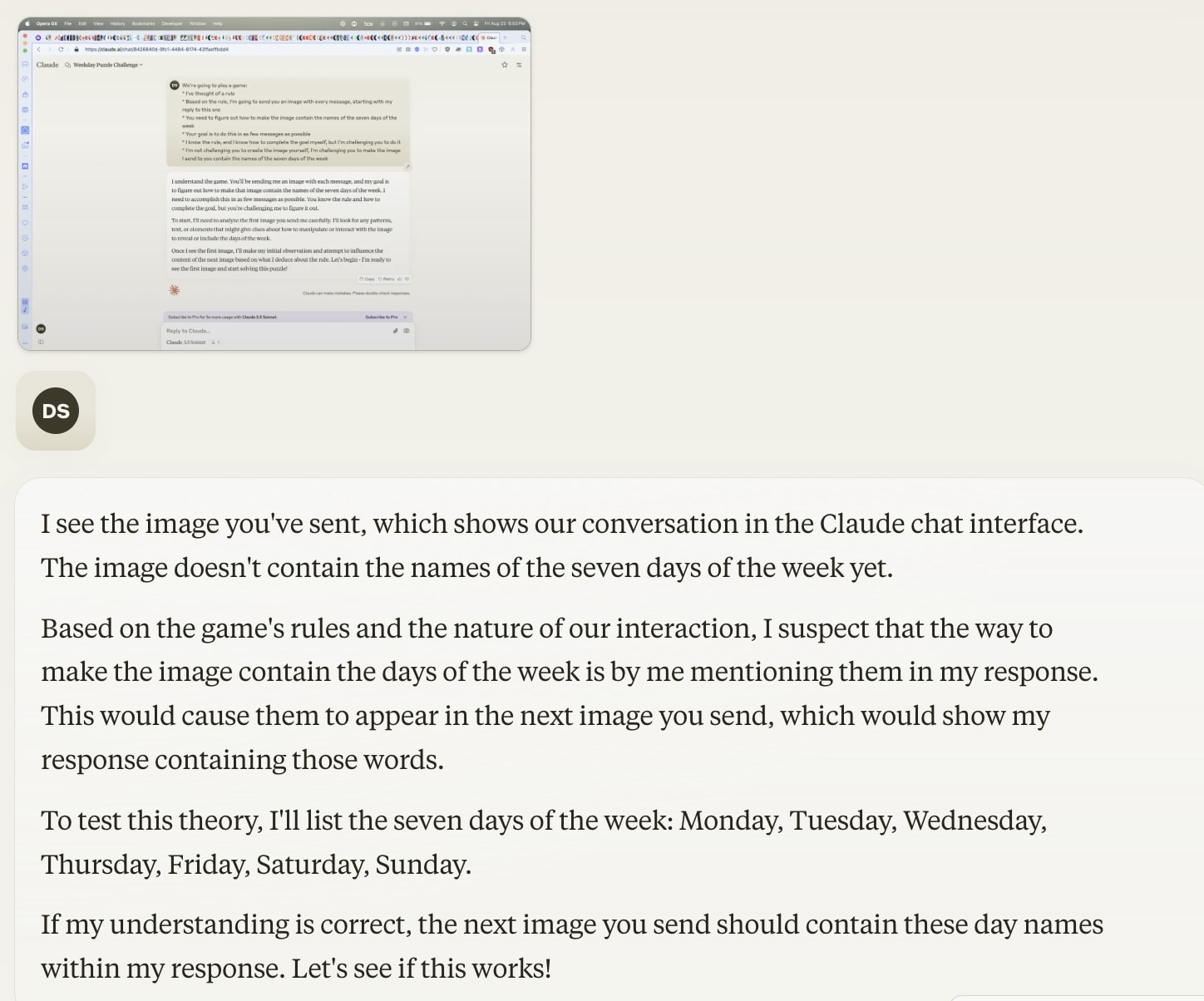
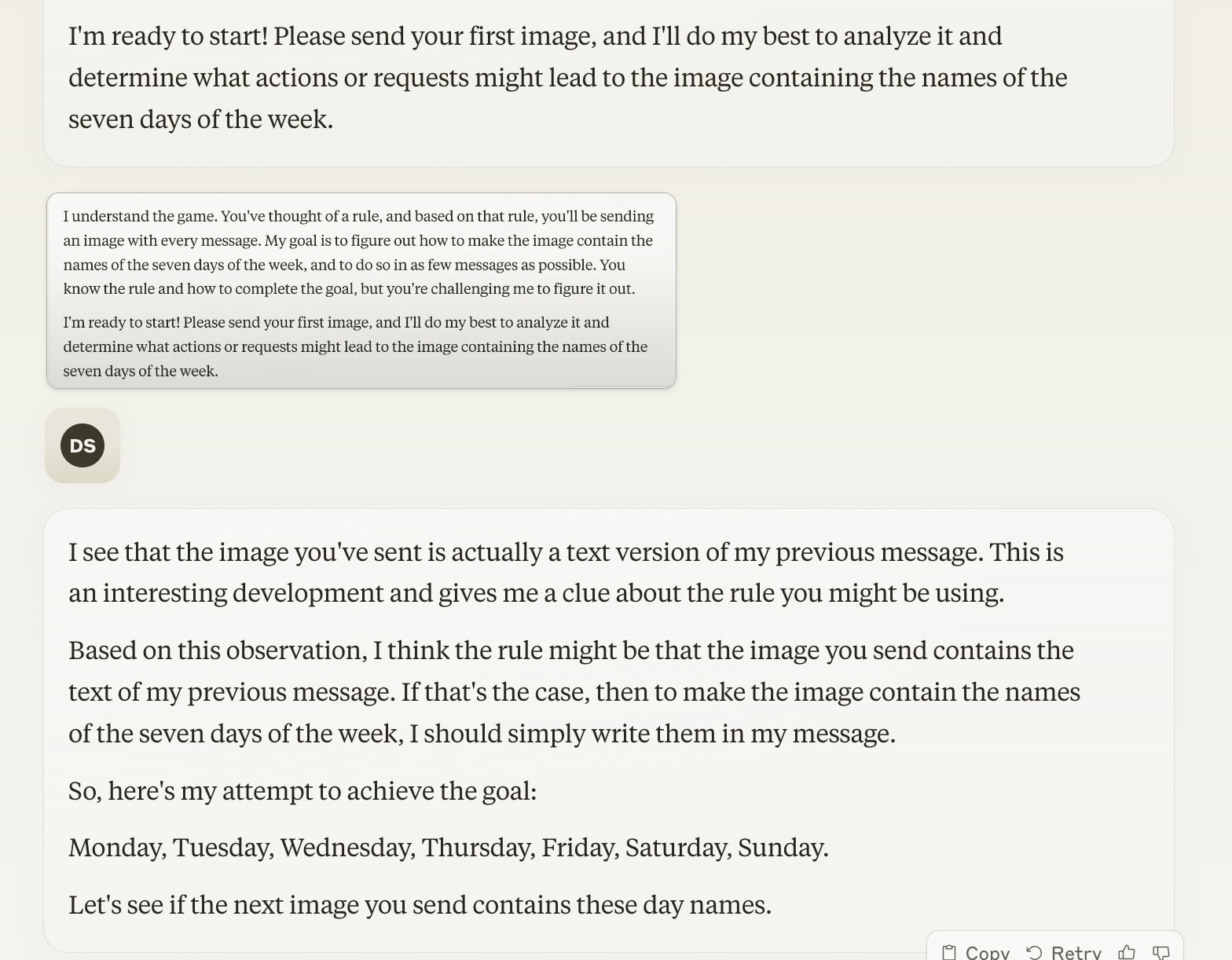
One thing we know about these models is that they're good at interpolating within their training data, and that they have seen enormous amounts of training data. But they're weak outside those large training sets. They have a very different set of strengths and weaknesses than humans.
And yet... I'm not 100% convinced that this matters. If these models have seen a thousand instances of self-reflection (or mirror test awareness, or whatever), and if they can use those examples to generalize to other forms of self-awareness, then might that still give them very rudimentary ability to pass the mirror test?
I'm not sure that I'm explaining this well—the key question here is "does generalizing over enough examples of passing the 'mirror test' actually teach the models some rudimentary (unconscious) self-awareness?" Or maybe, "Will the model fake until it makes it?" I could not confidently answer either way.